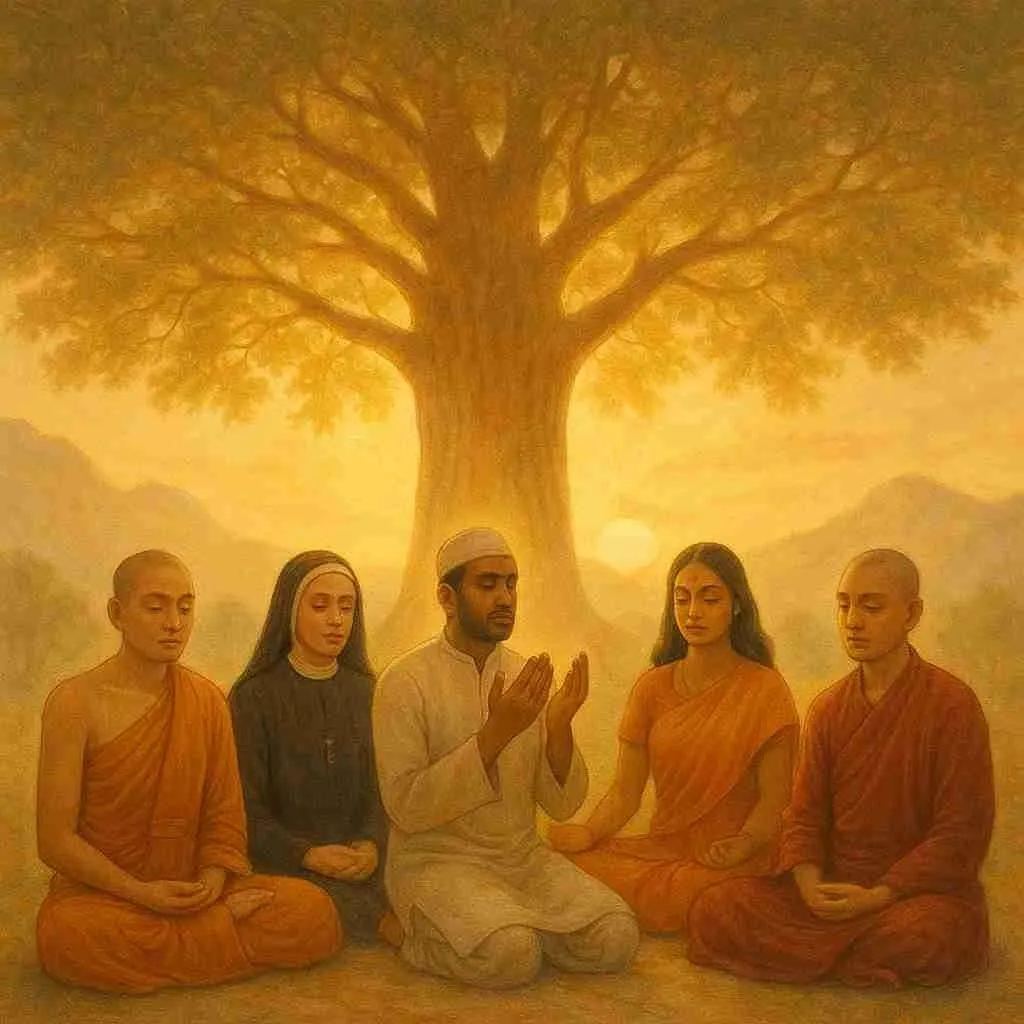The Spiritual Meaning of Suffering — What Every Religion Teaches
Suffering is one of the most universal experiences of human life. Every person, at some point, faces pain — whether it is physical, emotional, or spiritual. Yet, what makes suffering meaningful is how we understand it. Across the world’s great religions, suffering is not seen merely as punishment or misfortune but as a profound opportunity — to learn, to grow, and to connect with something greater than ourselves. The ways in which different faiths interpret suffering reveal a shared truth: pain, when understood spiritually, can become a path to transformation.
Hinduism: Karma, Learning, and Liberation
In Hindu philosophy, suffering is closely linked to karma, the law of cause and effect. Every action, good or bad, leaves an impression on the soul, shaping the experiences of one’s present and future lives. Pain, therefore, is not meaningless; it is the result of past actions and an opportunity to cleanse the soul of old debts.
The Bhagavad Gita teaches that even in moments of sorrow, one should act with faith and detachment. Lord Krishna tells Arjuna that pain is temporary, but the growth of the soul is eternal. Thus, suffering becomes a teacher — it humbles the ego, purifies desire, and brings one closer to moksha, or liberation.
In Hinduism, spiritual maturity means not escaping pain but rising above it — understanding that every tear has divine purpose and every struggle refines the spirit.
Buddhism: Understanding and Ending Suffering
The very foundation of Buddhism rests upon the Four Noble Truths, which begin with the recognition that life is suffering (dukkha). However, Buddhism does not stop at this acknowledgment; it provides a way out.
Suffering arises from attachment and craving — our endless desire for what we do not have and our fear of losing what we do. The path to freedom lies in the Eightfold Path, a disciplined way of living that cultivates wisdom, morality, and mindfulness.
To a Buddhist, suffering is not punishment; it is the natural result of ignorance. When one becomes aware of the impermanence of life and lets go of clinging, the suffering dissolves. True compassion also arises from this understanding — when we see the pain in ourselves, we learn to be gentle toward the pain of others.
Christianity: Redemption Through Suffering
In Christianity, suffering is deeply connected with love and redemption. The image of Jesus Christ on the cross represents the highest form of self-sacrifice — the willingness to endure suffering for the sake of others. Christians believe that God does not cause suffering but can bring meaning and salvation through it.
In the Bible, suffering tests faith, builds character, and draws believers closer to God. Saint Paul wrote, “We glory in tribulations, knowing that tribulation produces perseverance; and perseverance, character; and character, hope.” Pain, therefore, becomes the doorway to grace.
The Christian view teaches that even in suffering, one is never alone — Christ suffered with humanity and for humanity. Every moment of pain can become a moment of divine companionship, transforming despair into faith and fear into love.
Islam: Patience, Trust, and Divine Will
In Islam, suffering is a test (ibtila) and a means for the soul to grow stronger in faith. The Quran emphasizes sabr (patience) as one of the highest virtues. Every hardship is seen as an opportunity to demonstrate trust in Allah’s wisdom.
Muslims believe that no pain, however small, is wasted — even a prick of a thorn can erase sins. Prophet Muhammad (peace be upon him) said, “When Allah loves a servant, He tests him.” Thus, suffering is not a sign of divine anger but divine closeness.
Through prayer (dua), remembrance (dhikr), and compassion toward others, believers turn their pain into a source of inner peace. The essence of Islam’s teaching on suffering is surrender — knowing that behind every difficulty lies God’s hidden mercy.
Judaism: Struggle as a Path to Faith
In Judaism, suffering is often seen as part of a covenant relationship with God. The Jewish people’s long history of exile, persecution, and endurance reflects a deep spiritual truth — that faith is tested and strengthened through struggle.
The Book of Job in the Hebrew Bible explores the mystery of suffering without clear answers. Job loses everything yet refuses to curse God. In the end, his faith, not his comfort, becomes his victory.
Jewish wisdom teaches that questioning God is not rebellion but relationship. The struggle itself — the wrestling with pain and doubt — is what deepens the bond between the human and the divine.
Common Threads: Transformation Through Pain
Despite their differences, all these faiths converge on a single insight: suffering is not meaningless. It refines the soul, reveals truth, and leads one closer to spiritual awakening. Whether through patience, prayer, mindfulness, or service, every tradition teaches that suffering can be transformed into strength.
In the end, the spiritual meaning of suffering lies not in escaping pain but in understanding its purpose — to awaken love, humility, and compassion. When we see suffering not as punishment but as an invitation to grow, it becomes the most sacred of teachers.
~Religion World Bureau










